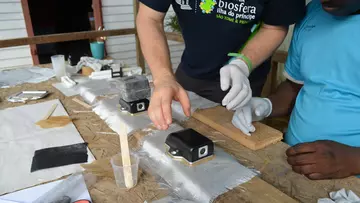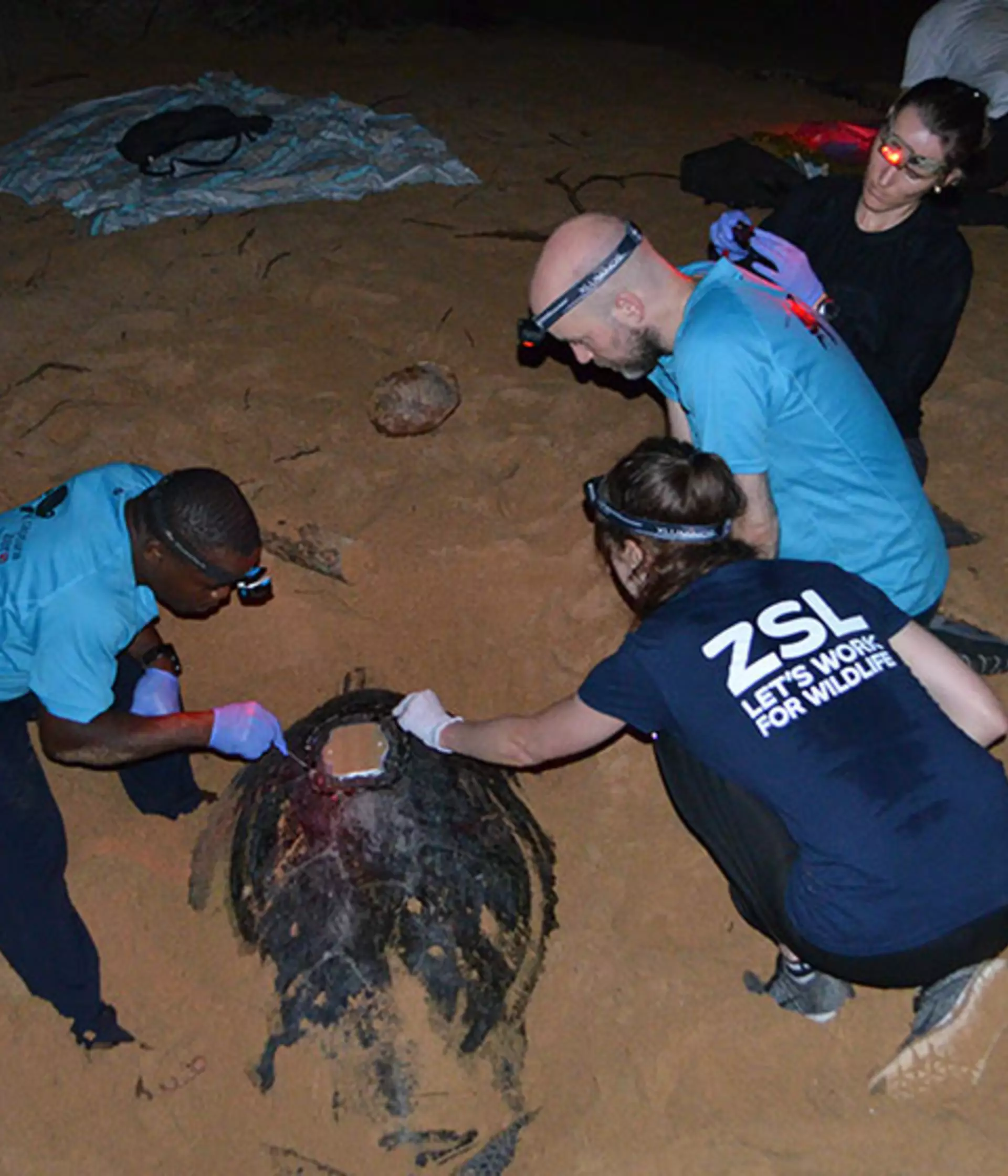ZSL
Zoological Society of London
New collaborative project aims to offer novel conservation technologies
Understanding species’ behaviour in space and time is critical to collect data to inform policy, designate protected areas, or identify threats to species. Access to affordable, open and customisable conservation technologies is hampering these efforts.
Readily programmable solutions are needed that enable data to be retrieved at low cost and allow researchers to modify designs as they require.
Enter a unique collaborative project between the Arribada Initiative and ZSL. This initiative is working with ZSL’s Conservation Technology Unit in their unique co-design facility - that enables the development of novel technology to protect endangered wildlife around the world.
The project is developing the Arribada “Pit-Stop” C (or PS-C) tag, and ZSL’s Rachael Kemp and the Arribada Initiative’s Alasdair Davies, who is a Shuttleworth Foundation Fellow, recently visited the beaches of Príncipe Island in West Africa, to field test the tags on the sea turtles living there.
We’re delighted to reveal the amazing footage that came through during the Christmas holiday!
How do the sea turtle tags work?
The tags take video clips at timed intervals, meaning we can now observe the presence of marine litter, plastic debris, changes in behaviour due to nearby construction or pollution, and other threats. We also devised a quick “pit-stop” method for attaching the tag to the sea turtles using a base plate and quick-release enclosure that allows for tags to be easily swapped when a nesting turtle returns to the beach. This minimises stress for the turtles - very important when they are breeding.
The tag comprises a Raspberry Pi computer and camera module, a power management board, batteries, and a nice enclosure to protect everything at depth. It was built in unison with Institute IRNAS, and there’s a user-friendly wireless charging case to make it easy for marine guards to download videos, reconfigure and charge tags after their voyages at sea.

A range of different behaviours have shown up on camera, including social interactions with males and other females, feeding, foraging, surfacing, resting and possible play. We have also seen encounters with pollution and litter, a significant threat to turtles.
What’s next for sea turtle tagging?
We are thrilled to have delivered a stable and affordable camera tag, and to be receiving this phenomenal monitoring data at low cost. We will work on algorithms to help analyse the data, and ZSL and the Arribada Initiative are developing an ultra low-cost, lightweight GPS logging device for inclusion in the tag later this year. The GPS payload can not only be deployed on turtles, but on a range of other priority species, to inform ZSL’s vital conservation research in a range of environments.
If you’d like to watch more wonderful videos of the green sea turtles’ adventures, there’s an entire YouTube playlist available here.
Climate change and human activity have pushed our precious planet to its limit, causing the devastating loss of so many habitats and species. From lab to field, hands on and behind the scenes, we’re leading the future of conservation, shaping agendas and influencing change to support better life, health and living for people and wildlife.
